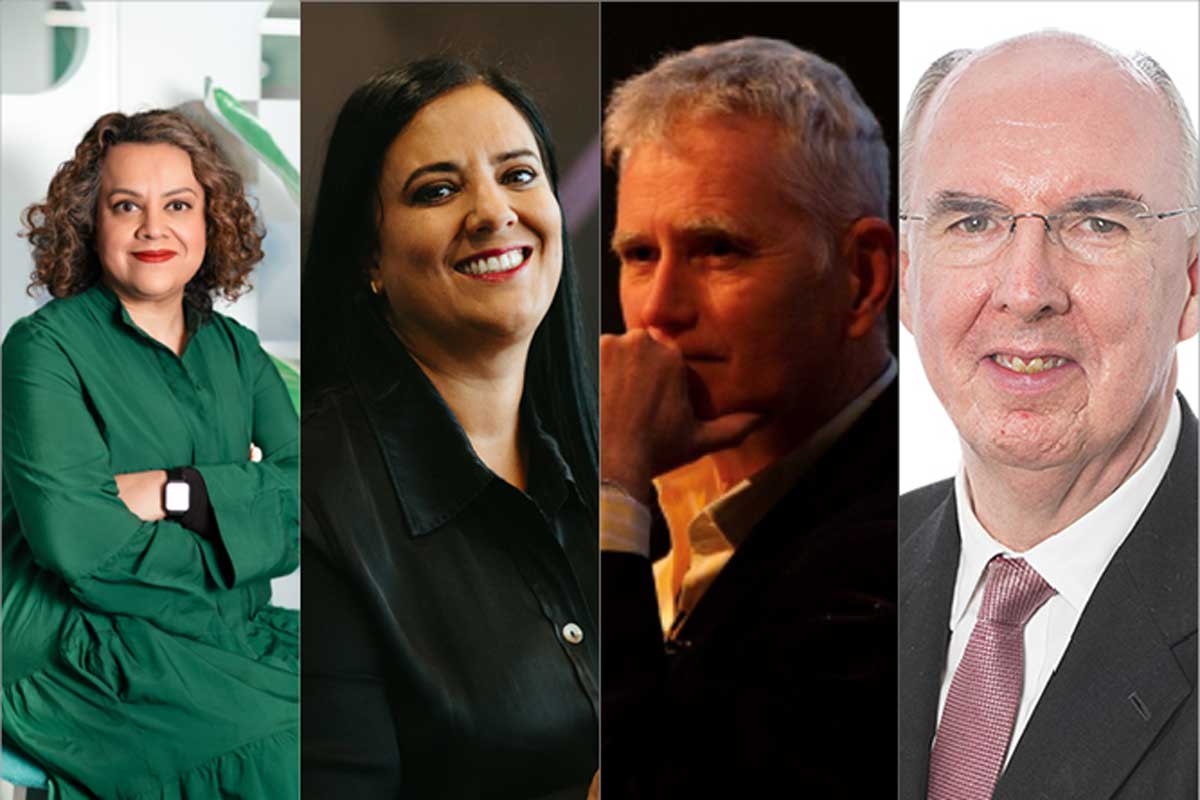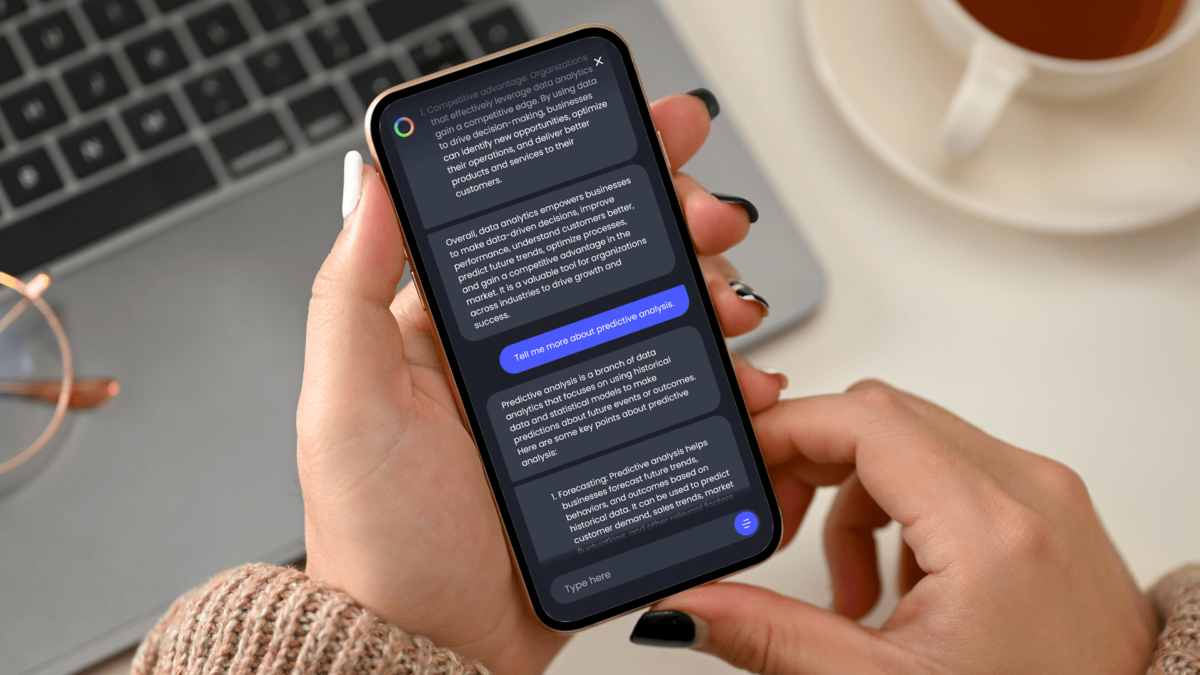Yes, ChatGPT really is creative!

Might ChatGPT win next year’s Eurovision Song Contest? In this blog about why generative AI really is creative, Dennis Sherwood says ‘yes’ – but this possibility won’t block human creativity.
I reckon ChatGPT is a lot more creative than I am. And perhaps you too. Which is probably rather scary. To explain why I believe this, let me explain what I think ‘real’ creativity is.
To do that, let’s study a role model of true creative genius, Beethoven. You may or may not like classical music in general, or Beethoven’s in particular, but surely we’ll all agree that he was hugely inventive.
What, though, did he actually do?
Yes, he composed music. But he didn’t create or invent, for example:
- Any of the instruments on which his music is played.
- The notation in which his music is written – the ‘five line stave’, the ‘blobs’…
- The ‘language’ of classical music, for example, the symphony, the opera…
- The ‘grammar’ of music, such as the musical scales.
- The ‘alphabet’ of music, the notes.
Each of those are fundamental to music. Yet Beethoven created none of them.
So what did he do?
My answer is this: using well-established musical forms and instruments, Beethoven combined together pre-existing musical notes to create new patterns – patterns now known, for example, as “Beethoven’s Symphony No. 5 in C minor”.
The essence of Beethoven’s creative genius is therefore one of discovering new patterns formed from combinations of already-existing components.
That too is what Jane Austen did, but in a different context: she used pre-existing components (words in the English language), using a pre-existing form (the novel), to create the new pattern, Pride and Prejudice. And this holds for science as well: Sir Isaac Newton famously talked of “standing on the shoulders of giants”, referring to his combining together concepts previously developed by others, such as Galileo Galilei and René Descartes.
Those are particular instances of a general principle most clearly articulated by these words to be found in The Act of Creation, by Arthur Koestler:
The creative act is not an act of creation in the sense of the Old Testament. It does not create something out of nothing; it uncovers, selects, re-shuffles, combines, synthesises already existing facts, ideas, faculties, skills. The more familiar the parts, the more striking the new whole.
Published in 1964, The Act of Creation explores creativity in literature, drama, visual art, science, engineering and humour. Koestler’s conclusion is that ‘the act of creation’ is fundamentally the same in all of these fields, as summarised in this quotation; what’s different is the emotional engagement of those involved. In great literature, drama and art, the reader or viewer is totally emotionally engaged – you want the lovers to live happily-ever-after, the villain to be punished, the hero to win. With humour, the opposite is true – you have to be emotionally detached; if you’re emotionally engaged, it isn’t funny at all. And science is emotionally neutral – although scientists can be passionate about what they are doing, the enquiry itself is intellectual.
My view is that ‘Koestler’s Law’ is a deeply insightful definition of what creativity actually is – the formation of new patterns from existing components.
And that has two implications.
The first is that all creativity is based on knowledge, for the more knowledge you have, the more ‘components’ you have access to, and the greater the opportunity for combining them into new ‘patterns’, the patterns of creativity.
The second is the fact that some patterns are much better than others.
Back to music. Given that all music is formed from patterns of the existing notes, I can sit at a piano, and, randomly, plink a dozen notes in sequence. According to Koestler, that would be ‘an act of creation’, but the resulting ‘tune’ is quite likely to be awful. Beethoven, or Paul McCartney, by contrast, would choose just the right 12 notes to create a true delight.
So there we have it.
Creativity is the formation of new patterns from pre-existing components. And to be creative, I need to have good knowledge of what the relevant components are, and some degree of skill and wisdom in combining just the right components together in just the right way to form something ‘good’.
For millennia, this has been the preserve of the human being – and possibly some other animals too, for there is increasing evidence that orang-utangs, for example, can use tools. Orang-utangs, though, are not a potential threat.
But ChatGPT might be, as are the other generative AI algorithms, of which more, and more powerful, versions will undoubtedly be developed in the very near future.
What, then, does ChatGPT do?
Firstly, it has access to the knowledge available across the entire internet. And although, in principle, you and I have access to search engines, we just don’t have the time to scan everything. ChatGPT does, because it operates exceedingly quickly.
Secondly, it can combine components within that knowledge base into myriad patterns incredibly speedily, forming and re-forming patterns far, far, faster than you or I ever could.
The great majority of those patterns will be of no use – like my random 12 note ‘tune’. But if the algorithm has some ‘understanding’ of ‘what good looks like’ in any particular context, then it will select the patterns that ‘work’. This, of course, is at the very heart of ChatGPT, for its ‘learning’ process is precisely that – the discovery, using vast resources of relevant material on the web, of ‘what good looks like’. And ChatGPT has a great advantage over us: it doesn’t have the emotional hang-ups that cause people like me – and maybe you too – to reject otherwise ‘good’ patterns, hang-ups like “that idea isn’t mine!” and “mmm… that might be a good idea, but I just can’t stand the person who suggested it – so I will oppose it!”.
This is no reason for you not to be creative too
The fact that ChatGPT can be, and indeed is, creative, is no reason for you not to be creative too, and as is now much discussed, ChatGPT should be regarded as an enabler, rather than a competitor. And there are three things in particular that ChatGPT will never take away from us – the ability to think, the ability to exercise wise judgement, and the ability to articulate clearly what’s in our minds. All of which emphasise the fundamental importance of teaching creativity, critical thinking, and oracy.
That said, ChatGPT will be pretty good at coming up with ‘new things’. Take, for example, the Eurovision Song Contest, won this year by Sweden’s Loreen, with “Tattoo”. There are now 67 winning songs, and the same number of runners-up, number threes… – a trivial quantity of material for ChatGPT to learn from. I’m absolutely convinced that in microseconds, if not nanoseconds, ChatGPT could compose the next 67 winners.
Let’s see what happens in 2024 in Stockholm…
Dennis Sherwood runs his own consulting firm, The Silver Bullet Machine Manufacturing Company Limited, specialising in creativity and innovation. He is the author of many articles and blogs, and 15 books, including Missing the Mark – Why so many school exam grades are wrong, and how to get results we can trust, and Creativity for Scientists and Engineers, winner of the “Specialist Business Book” category in the 2023 Business Book Awards.
FE News on the go…
Welcome to FE News on the go, the podcast that delivers exclusive articles from the world of further education straight to your ears.
We are experimenting with Artificial Intelligence to make our exclusive articles even more accessible while also automating the process for our team of project managers.
In each episode, our thought leaders and sector influencers will delve into the most pressing issues facing the FE sector, offering their insights and analysis on the latest news, trends, and developments.












Responses